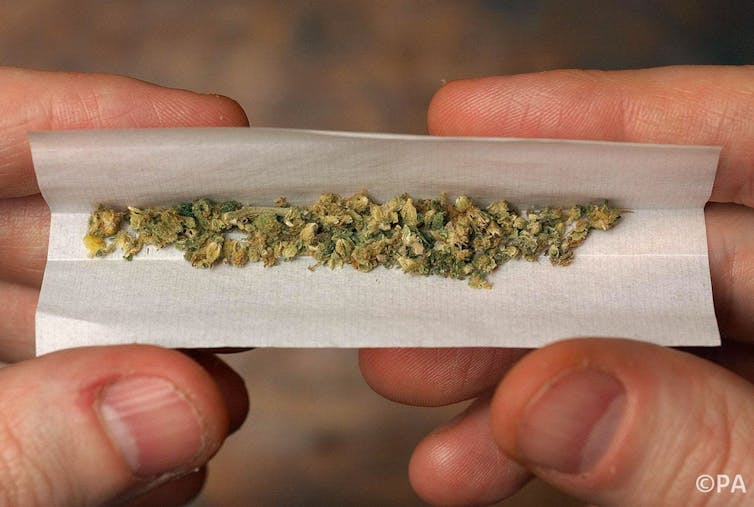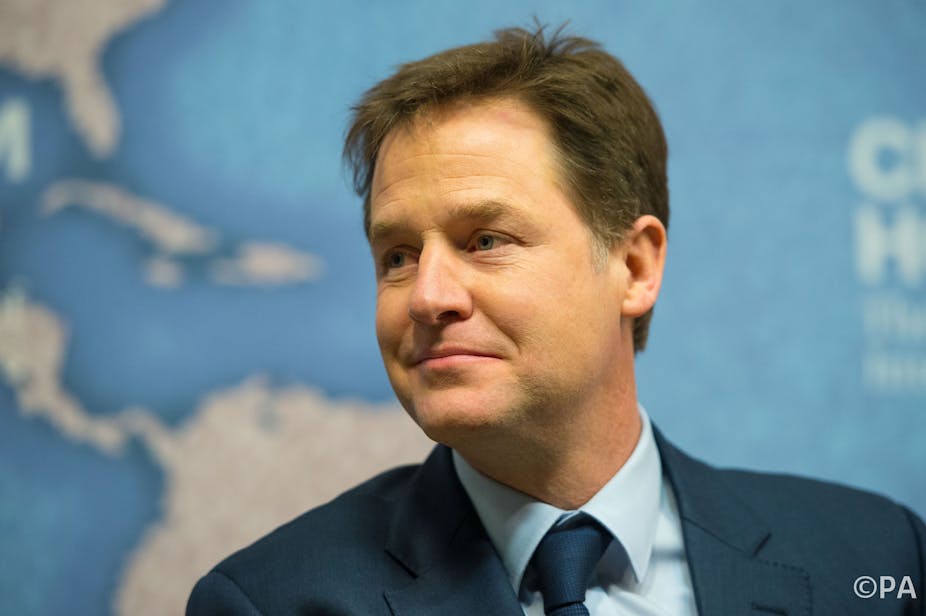The Liberal Democrats have confirmed that their 2015 manifesto will contain radical proposals for drug policy reform. Many of the measures echo the approach taken in Portugal, where a policy of decriminalisation was put into practice in 2001.
Drugs policy expert Susanne MacGregor from the London School of Hygiene and Tropical Medicine explains what reforms like these would mean for the UK.
What is Portugal’s drugs policy?
In 2001, Portugal reformed its drug policies to address public concern around problematic drug use, especially intravenous heroin use. A government-appointed expert commission proposed decriminalising possession of any illicit drug for personal use, which is defined as the amount an average user would consume in a ten-day period.
Responsibility for the drugs strategy switched from the Justice Ministry to the Ministry of Health, and policy was refocused to address users’ needs for treatment. Commissions for the Dissuasion of Drug Addiction were set up, consisting of a lawyer, a doctor and a social worker operating outside the criminal justice system, who make decisions on a case-by-case basis about how to assist the drug users who are referred to them. Criminal sanctions were abolished, and penalties became either administrative – for example, a fine – or a referral to treatment.
What has the outcome been?
There are a number of rough indicators which can be used to assess the outcome of the Portuguese approach, including the number of drug-related deaths, the number of people using a drug, the number of people using a drug harmfully, the number of young people using drugs, the use of services, or the rate of HIV or hepatitis infection. Based on these indicators, Portugal’s problems diminished between 2001 and 2007, and evidence suggests there has been a fall in the most problematic forms of drug use.
The main advantage of this approach is that users are not criminalised for possessing small quantities of drugs. Although taking drugs is still illegal, users do not get a criminal record, which could affect their opportunities for work or travel, and are not so stigmatised. The approach has also saved Portugal’s government money, mainly due to lower costs on the criminal justice and prison systems.

But, as Alex Stevens has pointed out, it is not possible to say whether these positive outcomes were caused by this particular change in policy. Decriminalisation was accompanied by an expansion of drug treatment services and improvements in social security support. It is quite possible that it was these features which led to improvements, rather than decriminalisation per se.
Since 2008, there has been a severe recession in Portugal, leading to cuts in services and a rise in unemployment. Improvements to the health of problematic drug users are threatened. But a key conclusion is that the policy change did not make things worse: according to the UK Home Office, “there has not been a lasting and significant increase in drug use in Portugal since 2001”.
What’s different in Britain?
As is shown by evidence in the book I edited, many features of the Portuguese system already exist in UK as a legacy of the New Labour reforms, including harm reduction services, a network of drug treatment services and supportive social assistance. The diversion of offenders from the justice system into treatment programs has been a feature of UK policy for over ten years.
Some recent changes threatened to undermine these services, including cuts to social expenditure, punitive Department of Work and Pensions policies, abolition of the National Treatment Agency, restructuring of the NHS, and changes to the commissioning of services and the abstinence/recovery agenda. But not all of these have had the adverse impacts some feared.
How hard is it to implement?
The main difficulty would be getting agreement to decriminalise personal possession of any drug. Support for decriminalising cannabis reached its high point around 2000, and since then the mood has changed with the arrival of skunk, more attention to the links between cannabis use and mental illness, change of fashions in drug-taking as well perhaps as of successful anti-tobacco smoking campaigns. Policymakers would have to face hostile opposition from the media.
Change in less centralised states like Switzerland or USA has come about via use of referendums, where they are used frequently to decide on controversial social issues. In the UK, referendums are used much less and mainly on big questions like Scottish independence or membership of the EU.
In the UK, 20% of cannabis cases still go through a court procedure. It was as much concerns about the cost of its criminal justice system (especially excessive rates of imprisonment) that led to changes in marijuana legislation in US states, so perhaps more cuts to government expenditures will change the outlook in the UK.
Could Portugal’s drug policy be exported?
Both the Portuguese and UK approaches can deal effectively with the harms relating to intravenous drug use. But we need to go back a step here – not all drugs, and not all drug use, cause harm. There are more and less harmful ways of using drugs, and some drugs are more likely to cause harm than others.
Where you take what drugs, with whom and how are all important factors. Injecting drugs clearly carries particular dangers, as does using unknown and untested white tablets, even taking skunk while in an MRI scanner. And there are differences in the relative harms of different substances as the Nutt harm index has indicated. Policy has to distinguish between these.
Decriminalising the possession of small quantities of any drug for personal use would reduce the harms caused to individuals by involvement in the criminal justice system. Currently, possessing small amounts of a controlled drug is treated as a criminal offence in UK. And the way it is dealt with depends on a classification system which is not fit for purpose.
The issue is more complex and nuanced than legislation and enforcement alone. Simply transferring a policy from one country to another is not the way to go – we have to recognise different political, cultural, social, economic and historical contexts. But these are precisely the features which are ignored by the current international drug control system. We need more localised policies and more experimentation to find out what suits different shapes of drug problem, at what time, in what country or region rather than simply swap one “one-size-fits-all” policy for another.

